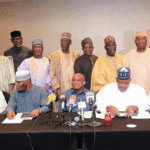Abuja — President Bola Tinubu signed four landmark new tax laws on Thursday. These reforms aim to simplify Nigeria’s tax system and boost government revenue. The changes focus on increasing income without adding hardship for citizens.
These New Tax Laws consolidate over 50 fragmented taxes into one code. They also standardize tax administration across all government levels. The reforms establish an independent Nigeria Revenue Service, replacing the Federal Inland Revenue Service.
VAT Reform Details
The Value Added Tax (VAT) rate remains at 7.5 percent. It will not increase to the previously proposed 12.5 percent.
VAT Reform Scope and Revenue Sharing Adjustments
This VAT reform excludes essential goods and services. Food, healthcare, education, rent, and public transport are now exempt. This zero-rating helps reduce inflation’s impact on household budgets.
Revenue sharing rules have also changed. Thirty percent of VAT will now be distributed based on actual consumption. Fifty percent will go equally to all states. Twenty percent will be distributed according to population. This aims to boost state budgets and curb tax evasion.
Small businesses with annual turnover under ₦50 million are exempt from company income tax. Low-income earners below ₦1 million receive a ₦200,000 rent relief. This relief effectively cancels out their tax obligations.
Large companies will also benefit. Corporate tax rates decrease from 30 percent to 25 percent by 2026. Credits are available to recover VAT paid on inputs. The overall objective of New Tax Laws is to raise Nigeria’s tax-to-GDP ratio from 10 percent. This figure is lower than Africa’s average of 16–18 percent. These reforms seek to achieve this growth without increasing poverty.
The reforms have met with cautious optimism. Many small business owners welcome the simpler rules. However, some express concern over potential new levies if enforcement is inconsistent.
“We support it, but we need clear guidelines to avoid harassment,” said one Lagos trader. These measures align with the administration’s commitment to reducing inequality. They also work to restore public trust in governance.
“Approximately 90 percent of Nigerians support these changes,” stated Taiwo Oyedele, head of the Presidential Fiscal Policy and Tax Reform Committee. He added that success hinges on transparency and public confidence. This significant overhaul will challenge the government’s commitment and the nation’s social contract.
By Abdullah Korede








